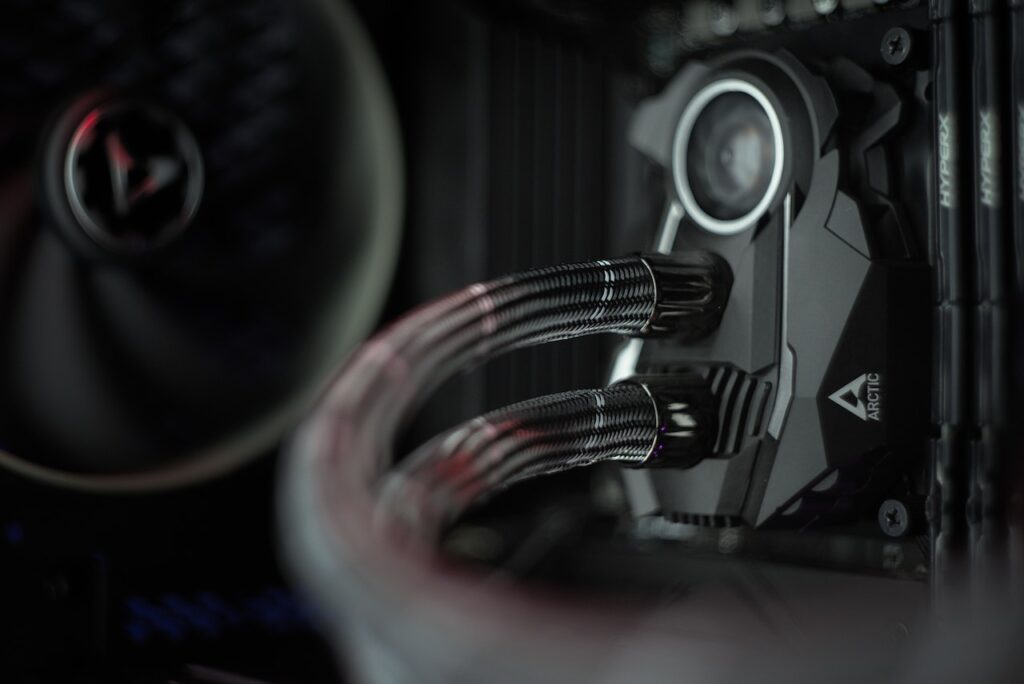How to Choose a CPU Cooler: Guide with 7 Things to Consider

The CPU is the heart of any computer system and performs all the vital operations that allow your PC to run smoothly. Therefore amount of heat generated by the CPU can be significant and without a proper cooling system, your system can be damaged or can perform poorly. A CPU cooler is an essential component that is responsible for reducing the temperature of the CPU. With so many options available in the market, it can be hard to choose a CPU cooler that is efficient, reliable, and fits into your budget. In this article, we will guide you through the process of selecting the right CPU cooler for your system, regardless of whether you’re building a PC or upgrading an existing system.
Also read: How to Build a PC: A Step by Step Guide
1. Price
When it comes to choosing a CPU cooler, the first thing to consider is your budget. How much money are you willing to spend on a quality cooler that will keep your CPU running smoothly? This largely depends on what you are looking for in terms of performance and what you plan to use your computer for. If you are an avid gamer or video editor, you may want to consider investing in a pricier CPU cooler that offers superior cooling performance. However, if you are simply using your computer for everyday browsing and basic tasks, a cheaper option may suffice. It is important to do your research and compare prices to ensure that you are getting the best value for your money. The better the CPu gehts the hotter it will become.
2. Use Case
In the most cases the stock cooler has enough cooling power for normal tasks or even gaming, but if you plan to overclock your CPU then it is useful to get a more powerful and highe qulaity CPU cooler. However if you want to get the best performance out of our PC it is still a good a idea to choose a better one because it just gives you the chance to get the most out of you computer.
3. Air vs Water Cooling
When it comes to keeping your computer’s central processing unit (CPU) cool, there are two main methods: air cooling and water cooling. Air cooling typically involves fans that blow air over a heatsink attached to the CPU, while water cooling circulates liquid through tubes to a radiator that dissipates the heat. Both options have their own pros and cons:
| Water Cooling | Air Cooling | |
|---|---|---|
| Pros | Improved cooling efficiency | Cost-effective |
| Lower noise levels | Simplicity of installation | |
| Overclocking potential | Lower risk of damage | |
| Aesthetically appealing | Minimal maintenance requirements | |
| Cons | Higher cost | Limited cooling capacity |
| Installation complexity | Higher noise levels | |
| Maintenance requirements | Bulkier design | |
| Risk of leaks or component damage | Restricted aesthetics |
4. TDP Classification
One of the most important factors when choosing a CPU cooler is the TDP Rating which tells you if a cooler is the right one for your PC. The Thermal Design Power (TDP) is the maximum amount of heat generated by the CPU or GPU.
When you buy a CPU and a cooler both of these components have a TDP rating. So don’t use a lower rated cooler for your CPU because it might cause overheating.
3. Looks/Clearance
Aesthetics and looks are often important to many consumers when it comes to choosing a CPU cooler. While performance is crucial, the appearance of a system can be just as crucial for some builders – especially for those who want their computer to look as good as it performs. A well-designed cooler can add a sleek and modern look to a system, and manufacturers have made a creative effort to produce attractive models that can accommodate different builds. If you are not sure what you like just check out other finished PC builds.
You also need to make sure that the cooler will fit into your case you can to that by checking the Cooler size and the maximum possible height. Also check if the Cooler might be to bulky and hit your RAM or GPU
6. Socket
Althoug most CPU coolers are build in a way that they fit almost all Sockets you should still check that it is compatible with yours because some only work for a certain socket. This information can easily be found in the motherboard and cooler Manual
4. Noise
When building a new computer or upgrading an existing one, the decision for a CPU cooler is not simply based on performance and compatibility, but also on noise and sound levels. The last thing anyone wants is a loud and distracting fan constantly whirring in the background while attempting to focus on work or enjoy a game. While some may prioritize maximum cooling efficiency over noise reduction, it is important to take into consideration the acoustic performance of a CPU cooler as well. One option is to invest in liquid cooling systems, which tend to be quieter than traditional air cooling fans. Usually bigger means more quiet so if you want to build a really quiet PC go for the larger ones.
So what is the right cooler for you?
As mentioned above it is not that easy to choose a CPU cooler. You have to look at diffrent factors like the size, sound levels, use case, socket and budget. I hope this post made everything more clear and that you now have the knowledge to go out and buy the perfekt CPU cooler. If you have any further questions feel free to ask them in the comment section below and i will give my best to help you out.
